People often ask me how I have dealt with my children throughout my illness and becoming an ostomate. It has certainly been a long journey together, with many changes to my physical situation, which have required that we constantly adapt as a family.
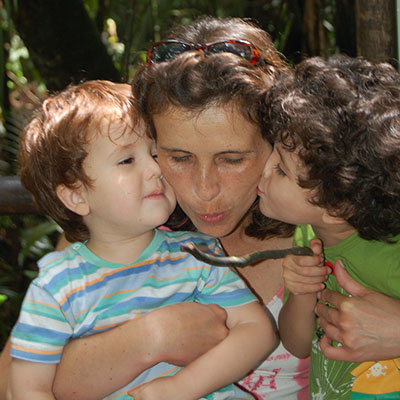
São Paulo Botanical Gardens, 2009
Pregnancy
I became pregnant at what felt like the ideal stage of my life. I was 34 and feeling healthy. My long-standing Crohn’s disease was not showing any symptoms, and I was beginning to think I would never have any more flares. I was very lucky—I didn’t need any fertility treatment, I had no complications and I didn’t need any medications. Everything went well, and my first son Olivier was delivered via caesarean section in March 2006. I had long known he would arrive this way, as a history of Crohn’s in the rectum and anus meant vaginal delivery wouldn’t be possible.
‘It has certainly been a long journey together’
When, 8 months later, I ended up becoming pregnant again, things did not go so easily. This time, my Crohn’s began to occasionally flare up again. I was booked in for an anticipated delivery, and another boy, Leonardo, was born in July 2007.
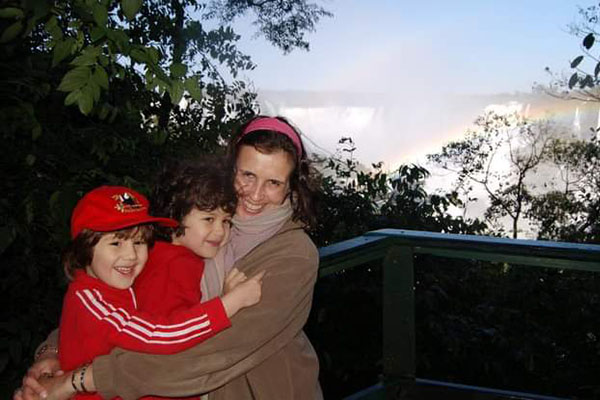
Cataratas Iguaçu, Brazil, 2012
A new family
Through my boys’ early childhood, I was just able to deal with the physical challenges of being a new mother, with plenty of help from the wider family. Over this period, I was admitted to hospital for Crohn’s flares more times than I can count. These stays were sometimes short, rarely more than 4 or 5 days, but they could be longer.
As the boys started going to school, I found myself not feeling well enough to go along with them to parties and presentations, and our day trips had to be postponed until I felt better. There were of course moments when I felt frustrated and guilty about my absence from my children’s activities of daily life, especially at school.
At first, my boys were too little to understand my challenges. However, little by little, they began to understand that I had a chronic disease and comprehend how threatening it could be. I vividly remember how Olivier, my eldest, used to tell me that, when he grew up, he wanted to become a scientist so that he could find the cure for Crohn’s. This was not an easy thing to hear; my heart just broke into pieces, as it came with the realisation that my suffering was making my children suffer too.
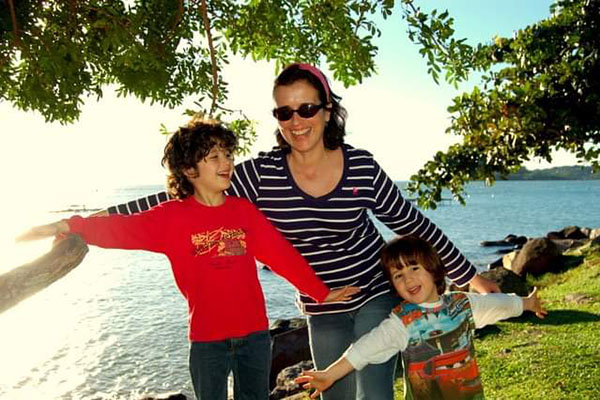
Florianópolis, Brazil, 2012
World turned upside down
In September 2016, I went for ostomy surgery Crohn’s, and my life changed forever. My boys were 9 and 10, old enough to realise that I would need my stoma for the rest of my life, and my husband explained to them that, from day onwards, I would have a bag attached to my body. He said that the process of telling them was quite easy, as they had known about my health issues since they were little, and they did not have trouble understanding.
Unfortunately, my new stoma also brought many complications. I spent more than a month in hospital, and more than half of that in intensive care. When they came to visit, I could see how shocking they found it to see their mother’s body connected up to so much medical apparatus. My youngest especially seemed to be concerned about touching me, and from his face we could see that he was clearly worried.
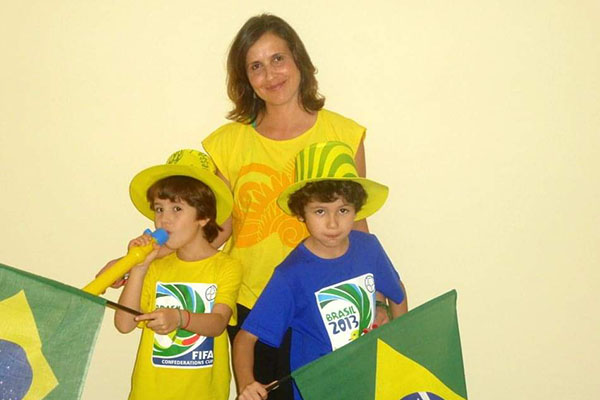
World Cup, Brazil, 2014
Working it out
Eventually, I made it home, and as a family we learned to live with my stoma. The boys have been very understanding about the fact that I have no control over when my stoma releases gas or faeces. Sometimes it happens during our family meals, and that’s okay.
We did have to come to terms with the need to avoid stress on my abdominal muscles, which limited the things we could together. As boys, they were unsurprisingly disappointed to hear that I could no longer play football with them or wrestle with them on the bed on Sunday mornings.
‘It is always a funny time for us’
However, this has in no way stopped us having fun. With time, care and the right equipment, ostomates can lead very active lives and play almost any kind of sport. I am a keen hiker, and we all go hiking as a family. The boys know that, during our hikes, I sometimes need a few stops to release gas or an urgent bathroom break to empty the pouch. It is always a funny time for us, as everyone knows they need to take up a lookout post incase other hikers come by. By now, we have our technique worked out.
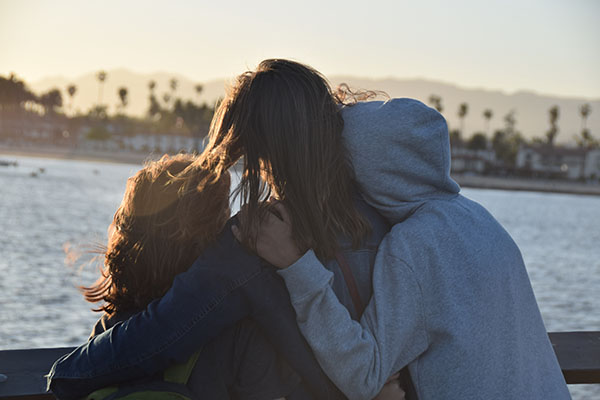
Santa Barbara, California, 2019
Sharing is caring
If anything, having a mum with an ostomy and special needs has made my sons more responsible and mature. They know my parastomal hernia prevents me from lifting anything particularly heavy, and they’re always quick to offer help whenever I need it, especially on our trips, when they’re the ones to take charge of lifting the luggage. My illness and stoma have helped us raise two lovely boys who understand that everyone, including their mum, is different and accept people for who they are. It has made them stronger, as well as more caring, loving and open-minded individuals.
‘It has made them stronger as well as more caring, loving and open-minded’
Since getting a stoma, my quality of life has improved greatly, and we do lots of things together as a family. I am sure, regardless of everything that has happened, they know and I know they prefer this new version of me!
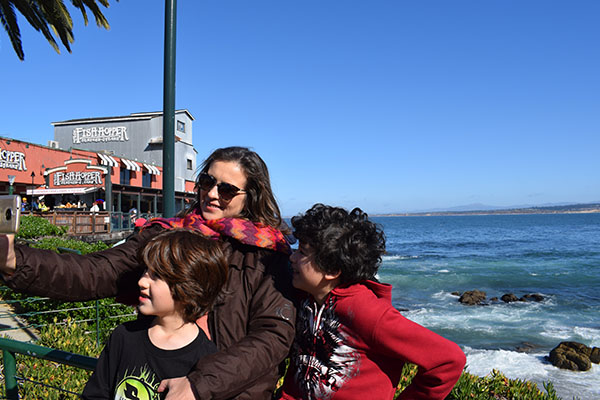
Monterey, California, 2018
Other women who have shared their experience of raising children with a stoma
• Justine G for Essex Mums
• Krystal Miller for Eakin Cohesive and on Facebook
• Lottie Ryan for Opus Healthcare
• Louise X for Pelican Healthcare
• Stephie Simpson for SecuriCare
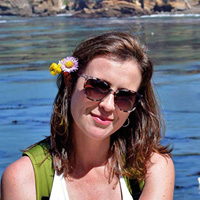
Luciana Podschun lives with her husband and their two boys, and she enjoys nature, travelling and gastronomy

